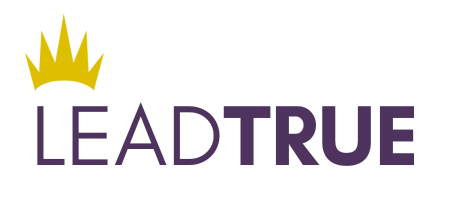The Leadership Paradox : Our Inner-Knowing Is Our Biggest Fear
A couple of years ago, I was asked to assist a high performance team in their development program. We used Patrick Lencioni’s 5 Dysfunctions of a Team as our road map. The base of his pyramid is trust, followed by healthy conflict, commitment and personal responsibility. At the top of the pyramid is Team Results. I love working with teams who have a clear focus on results.
I find it a lot easier than trying to help teams with fuzzy goals. I also learned to pay attention to the capability of the team leader, because that is who most likely will make it happen. I had become pretty skilled at knowing what I was getting myself into when working with teams.
I remember my first meeting with this particular team leader. We had an instant click. We talked about how important trust was, so that his young and eager team could live up to their potential. We discussed being able to make mistakes and, above all else, being vulnerable. Thrilled by the kindredness of our spirits, I started to work with his team and we built trust slowly and steadily.
Then we had our fourth meeting. We just had taken our seats. I started with the familiar question, “How are you coming to this meeting today?” I barely got the words out when he dropped a complete outburst of rage and accusation on his team. I could feel how all the team members went back behind their fences. We made the best of it for the rest of that meeting, yet I was left flabbergasted. I can always trust my instincts when it comes to integrity. I was sure he was sincere in his intentions to be open to mistakes. What happened?
Years later, I found out what I had missed. It's what I call The Leadership Paradox, and it affects how we lead all areas of life.
Every one of us has an inner-knowing, a notion about what is true and good in life. This aligns with our deepest desire for the world. These inner-truths typically reflect both something universal while feeling deeply personal. In the case of my team leader, he believed deeply in human potential and had a deep drive to contribute to growth.
Now here is the tricky part. Directly related to this deep knowing is our biggest fear. Our biggest fear is that our inner-knowing, our deepest desire, may not be possible, and we personally might fail in making it happen. This fear pushes our red button and we display sudden, surprising, extreme behaviors. My team leader had seen some evidence that his team wasn't living up to its potential. This annoyed him so much that he lost it. The saddest thing about fear pushing our red button is that we create the opposite of what we desire. He got in the way of the team's excellence by losing their trust.
We all have this paradox inside of us, which is our life's theme. Once we know our life’s theme, we can be aware when fear is pushing our button and react to it constructively Thinking about questions like this begin to reveal your own theme to you:
What were the happiest moments (big or small) of your life?
What was present in these moments?
What did you think at these moments? What did you just know to be true?
What were the most difficult, unpleasant moments in your life? What would you consider a crisis?
What made them difficult and unpleasant? What was missing, lacking in these moments?
What where you afraid of? What conversation of fear was going on?
You may see a certain overall theme with its polarities. You may know that life is abundant in nature and feel afraid of scarcity. You may know that we are all one and feel afraid of separation. You might know all humans are equally worthy and feel afraid of your own unworthiness. Want to discover your own blueprint including your life’s theme? Come to us and do a YODTUM (Your Own Door To your Unique Manifestation).
About the Author
Lead True Global Leader Andrea Henning’s vision is that when people discover their authenticity and dare to follow their bliss they are happier and more successful in their lives while serving as an inspiration to their communities.





